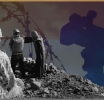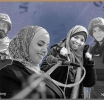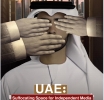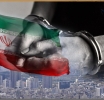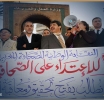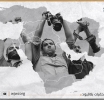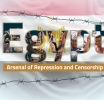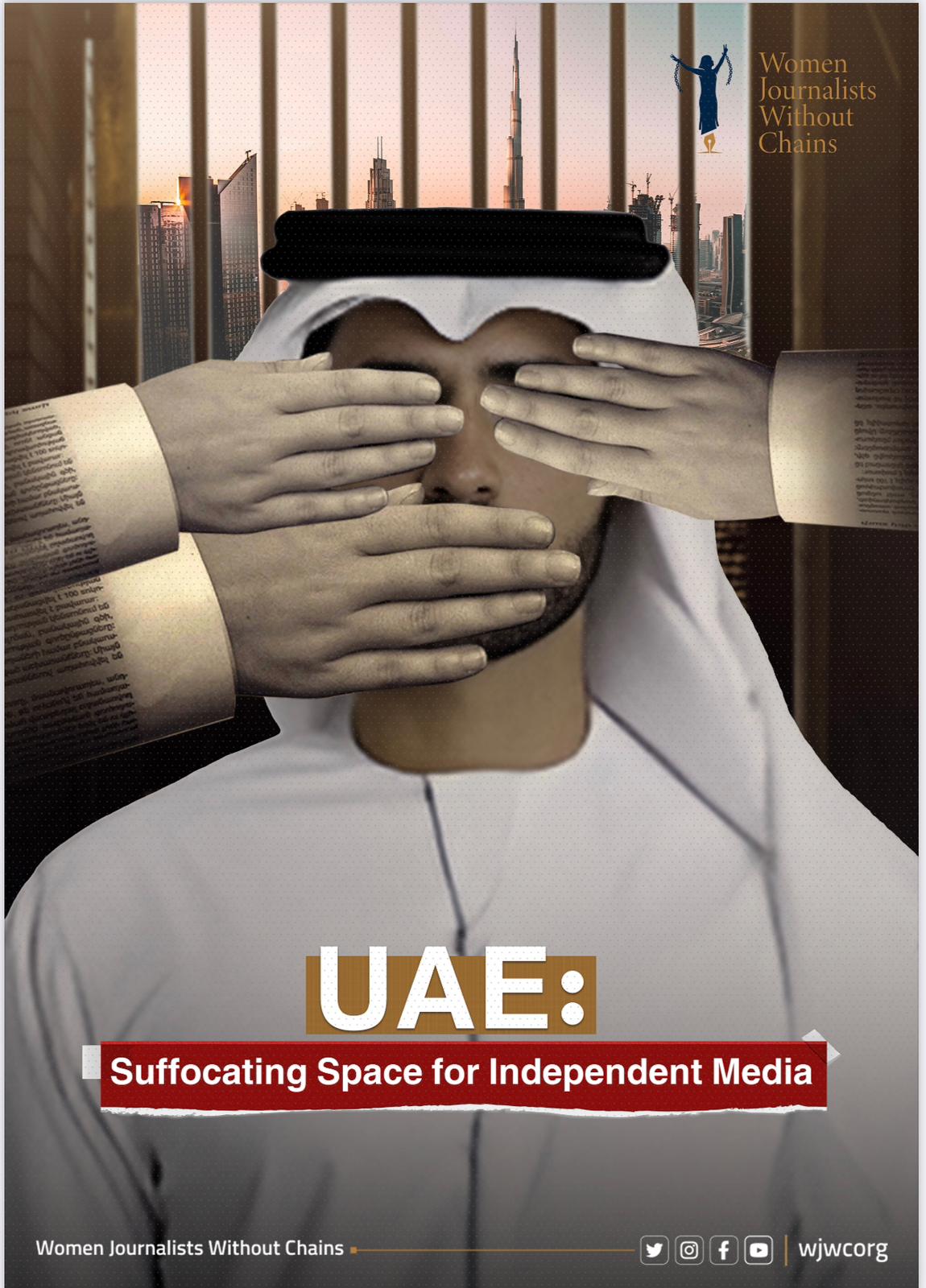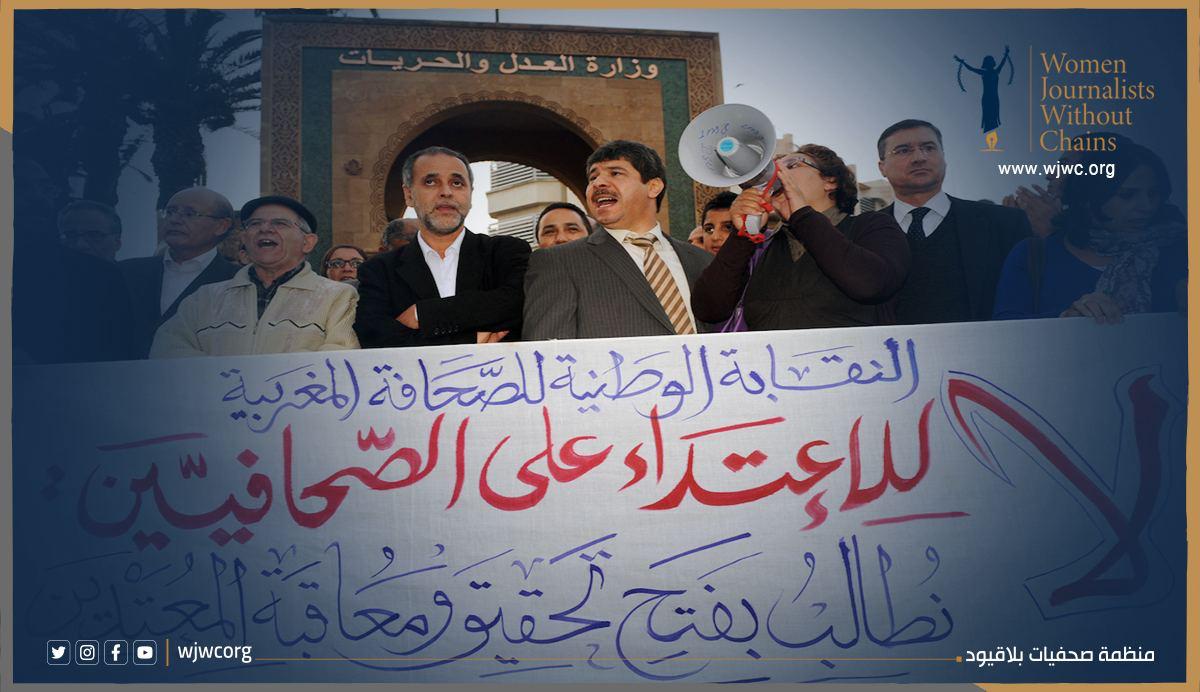As French philosopher and writer Albert Camus once said, 'A free press can be good or bad, but, most certainly, without freedom a press will never be anything but bad.' Egypt is currently experiencing a severe crackdown on press freedom, with over 600 websites forcefully blocked and independent news outlets targeted for publishing government-critical content. This report explores the impact of these measures on journalists, media workers, and the general public.
In the context of eroding democracy throughout the Middle East and North Africa, press freedom in the region is facing growing instability. Nevertheless, Egypt stands out as one of the most egregious examples of this trend, with its authorities having transformed the country into a vast prison through the use of oppressive tactics.
Since President Abdel Fattah el-Sisi's to power in 2013 following the overthrow of former Egyptian President Mohamed Morsi in a military coup led by el-Sisi against the first democratically elected president in Egypt's history, the hopes of society and journalists that were pinned on the January 2011 revolution have been dashed. The government have now embraced different fascist techniques to suppress even the most basic forms of criticism as pressure and intimidation against journalists and media outlets have gradually intensified.
This report delves into the precarious state of press freedom in the Republic of Egypt, where an ominous aura of suppression looms under the watchful eyes of military and security leaders. As a result, the once-thriving landscape of Egyptian journalism is now fraught with obstacles and impediments that hinder the ability of media outlets and journalists to exercise their right to free expression and critical discourse.
The Women Journalists Without Chains (WJWC) recently documented a series of abuses that have affected over 112 journalists in 2022, 20 of which were Egyptian women. These violations included arrests, physical attacks, torture, termination of employment, and other forms of mistreatment.
Carceral State
Egypt has become a notorious destination for imprisoning journalists, with over 50 currently incarcerated. This makes Egypt the third-largest prison for journalists in the world, after China and Iran. The Women Journalists Without Chains organization has documented the continued imprisonment of 53 journalists in 2022 alone. Sadly, these journalists are not alone in their predicament, as an estimated 60,000 people are currently being held in Egyptian prisons for political reasons.
Most of these journalists are taken into custody and held without charge for longer than two years, which is against all international norms and rules. Additionally, it is against Egyptian law, which places a two-year cap on pretrial detention sentences and forbids their extension. New cases are opened and these detained journalists are repeatedly recycled back to prison, some of whom have been detained since 2016. Mahmoud Hussein, a journalist who has been detained without charge since December 2016 due to his employment for the Qatari Al Jazeera television network, is the example of someone who has experienced this.
Most of these journalists are accused and imprisoned for either "spreading false news," "joining a terrorist group," or "misusing social media." This is done under the broad 2015 counter-terrorism law, which expanded the definition of terrorism to include all forms of criticism and contains ambiguous provisions, like many other similar laws.
Journalists detained in Egypt are reportedly experiencing severe mistreatment inside the country's prisons, including torture, lack of communication with their families and lawyers, and unfair trials. One such journalist, Alaa Abdelfattah, a blogger and journalist who holds British citizenship, began a complete hunger strike on November 6, 2022, after seven months of a partial strike.
Abdelfattah demanded to meet with a delegation from the British embassy in Cairo as a pre-step for his release. However, the Egyptian government refused to comply with his demands, as well as those of his family and the British embassy, until his health deteriorated in his cell. After several days, Abdelfattah ended his hunger strike. According to his family, he may have been subjected to forced feeding in his cell. In November, the administration of Wadi El-Natrun prison denied lawyer Khaled Ali's request to visit his client, Alaa Abdelfattah, for the third time that month, despite obtaining a visit permit from the prosecutor general.
In 2022, not only were independent or opposition journalists subjected to arrests and violations, but pro-regime journalists who expressed criticism of the repressive methods used in dealing with citizens suffering from economic pressures, or those who reported being victims of police violations, were also affected.
Instead of the Ministry of Interior and its security and court system holding the officer accountable, journalist Sherine Shoukry was detained in May 2022 for speaking out about a police officer's violation and blackmail. In the same month, Donia Samir and her three children were arrested - then released - for publishing a video about being harassed by one of the governors.
Legal Arsenal
Egypt's legal arsenal against freedom of the press and media is well-stocked, boasting a formidable array of laws ranging from the Anti-Terrorism Law (2015) to the Press and Media Regulation Law (2018), which effectively places the Supreme Council for Media Regulation under the executive authority's complete control. The Law on Combating Information Technology Crimes (2018) further bolsters this arsenal.
Recent amendments to the Penal Code (2021) have only added to the government's arsenal, with harsher penalties for journalists who dare to cover criminal trial sessions without prior approval, and steeper fines and prison sentences of up to five years for those who disclose confidential information.
Firstly, the Anti-Terrorism Law contains charges that may lead to severe penalties such as life imprisonment or execution for journalists. This law is often used to accuse journalists of "membership in a terrorist organization" and "publishing false information" during the government's fight against terrorism.
The law presents a broad and vague definition of terrorism, and expands the range of actions for which journalists can be prosecuted. Additionally, the law gives the government the authority to label any journalist who speaks out against it as a terrorist, and includes other troubling clauses, such as one that targets the dissemination of ideas that encourage violent behavior or terrorist activity on social media.
These vague terms could be used to target journalists and bloggers who use social media platforms. Furthermore, journalists are strictly forbidden from publishing any information about terrorist attacks beyond official sources. Even non-violent, constitutionally protected actions taken by private individuals, journalists, and campaigners for human rights could be subject to prosecution under this legislation.
Although states have the authority to create legislation in order to combat terrorism, international agreements declare that having expansive definitions of terrorism is a breach of international laws and agreements. The United Nations General Assembly emphasizes that nations "must guarantee that any actions taken to combat terrorism are in accordance with their commitments under international law," and disregarding these agreements and laws is a violation of them all.
Secondly, press and media regulation: The law addresses the issue of granting licenses to organizations, institutions, and media outlets, paving the way for the creation of the Supreme Council for Media Regulation, an organization that is solely under the control of the executive branch and whose members are personally chosen by President Abdel Fattah el-Sisi.
This statute allows for the regime's arbitrary manipulation of Egypt's media environment. Importantly, the Supreme Council is housed in the Maspero building in the city's center, which also houses the corporate offices of Egypt's official government radio and television network.
The law will have negative effects on both the freedom of access to the Internet and the country's ability to exercise free speech because it places strict restrictions on both the public and private media sectors. The authority will be able to keep an eye on all Internet websites under the law. Every Facebook or Twitter profile with more than 5,000 followers is regarded as a media tool by the law. The Supreme Media Council has the authority to suspend or fine the operations of publications and broadcasters
A Cairo court sentenced journalists Hisham Fouad and Hossam Moanes to four years in prison with hard labor at the end of 2021 before being released in 2022 on charges of "disseminating fake news in and outside of Egypt" and "disturbing public order and security." "Fatima Abu Al-Maati" completed a three-year prison term in a comparable circumstance. And "Fouad" was arrested in Cairo in 2019 and initially accused of "economic conspiracy" and even "terrorism."
Thirdly, The Information Technology Crimes Law: it imposes restrictions on people's ability to express themselves freely and hold differing opinions on the Internet and on social media. As long as they "print or broadcast false news" or "incite violations of the law, violence, or hatred," including foreign media, these websites or accounts may be suspended or blocked by the government under the law.
According to Article 2 of the law, telecommunications providers must keep a user's information system record for 180 days. The same article requires telecom providers to comply with any additional data collection requirements that may be imposed by the Supreme Council for Media. This means that service providers may later be required to collect and retain data that is not specified in the law, based on a decision made administratively by the council. The article also expands on the authorization to collect user data.
The Egyptian government is also given the legal authority to obstruct access to any website that it deems to be "a threat to national security or jeopardize the country's security or national economy" under Article 7 of this law. In accordance with Article 14, "any individual who knowingly or accidentally, without justification, accesses a website, private account, or computer system to which access is restricted" faces up to a year in jail and a fine of 100,000 Egyptian pounds ($3,250).
Between 2017 and 2023, the Egyptian authorities have forcefully blocked over 600 websites, with independent news outlets Mada Masr and Darb being among the most affected due to their tendency to publish government-critical content.
In March of 2019, Al-Mashhad newspaper was fined 50,000 Egyptian pounds ($3,100) and had its website blocked for six months by the Supreme Media Council after publishing inappropriate images that allegedly defamed media personalities. Similarly, in August of 2019, Al-Shorouk newspaper faced a ban on an article by Professor Mustafa Al-Saeed that discussed poverty in Egypt using income and expenditure data from the Central Agency for Public Mobilization and Statistics. The reasoning behind the ban remains unclear.
Through the implementation of various laws and regulations, the Egyptian regime has created an atmosphere where the media is legally required to adhere to government policies.
In addition to blocking access to the internet and independent news sites, the regime has utilized the popularity of television and radio to amplify its political messaging. This has resulted in a highly effective means of controlling the flow of information and shaping public opinion, something that was not witnessed before the January 2011 revolution. Even during the dictatorial reign of Hosni Mubarak from 1981 to 2011, governmental oversight over public and daily reports was not as pervasive as it is today.
Unprecedented Excessive Blackout
In addition to restructuring the legal framework that governs the media with oppressive intent, the Egyptian regime has been actively pursuing plans to exert control over private media ownership since 2017. This move was prompted by criticisms leveled against President el-Sisi by private media outlets. As a former military commander and intelligence officer, el-Sisi has been closely attuned to the media landscape since assuming power.
He has alternated between attempting to coerce media professionals to align with his policies and making veiled threats, such as his infamous question: "I mean, is your sector not having any calamities, or what?" In his efforts to stifle dissent and maintain tight control over the narrative, he has revamped the media industry in a manner that privileges state interests over individual freedoms.
Since 2017 until today, President el-Sisi's regime has successfully extended its control over a significant portion of the country's most influential media outlets, utilizing various means such as official authority agencies, intelligence agencies, and media companies owned by businessmen with close ties to those in power.
At present, the United Group for Media Services, which is owned by the Egyptian General Intelligence and headed by Major General Abbas Kamel, effectively manages the private media in Egypt. This came about as a result of the merger of two companies, "Egyptian Media" and "D Media," which led the purchase of private media through a combination of financial incentives and threats. Politicians and businessmen were coerced into selling their shares in television networks and newspapers, thereby enabling the intelligence services to exert control over the editorial and political lines of these media outlets.
The Egyptian General Intelligence-owned United Group holds the majority stake in a wide range of media outlets in Egypt, including popular channels like DMC, Al Hayat TV, CBC, ON, Misr Quran Karim, Cairo News, Channel Documentaries, Al Nass, Al Mehwar, Al Ahly, Zamalek Club, and Extra Network. The group also controls numerous radio stations, including Nile Radio Network, Radio 9090, Ali Al-Kabeer, Ahla Shaabi, and Hawaha is Egyptian, as well as press institutions such as Youm7, video 7, Al-Watan, Al-Dustour, Al-Webda, Mubtada, Zajil, Business Today, Egypt Today, and Amwal Al-Ghad. There have also been rumors of the group's acquisition of Al-Masry Al-Youm.
President el-Sisi's regime has effectively taken the reins of the state media, which was already well-established, as well as most of the country's media outlets, including those owned by businessmen and individuals linked with the military and intelligence services. This strategic move has been executed with the goal of controlling the flow of information to the general public, while also molding their opinions through the propagation of conspiracy theories, disinformation, and a disdainful attitude towards political opposition.
President el-Sisi's regime has orchestrated a comprehensive restructuring of the vital sector in Egypt, securing its hold on media outlets. As a result, the main function of these platforms is now to support el-Sisi as the personification of the official narrative through political cheerleading and propaganda. Consequently, discussions about the people's conditions or even the most basic criticisms of the regime have effectively disappeared from public discourse, leaving the citizenry in a state of information vacuum and isolation.
The situation reached a point where Mansour Nada, a professor at the Faculty of Mass Communication in Cairo, addressed the Egyptian regime on March 18, 2021, stating: 'Sir, there is not a single article worth reading in the Egyptian press these days. The TV programs are unconvincing, and there is nothing to rally around or follow.' According to Nada, all the media outlets seem to be following a similar pattern, with identical introductions, methods of persuasion, and presentation.
He criticized the media for being solely focused on pleasing the regime and catering to its interests, which, in his opinion, has rendered it completely worthless. However, Nada's critical remarks did not remain for long, as he soon deleted them and issued a statement two days later, apologizing to the employees of the intelligence service and members of the armed forces.
Abdel-Fattah el-Sisi's regime has implemented measures to control the ownership of private media, imposing a tight grip on journalists and media outlets. These measures have led to widespread repression and censorship, leaving journalists with little choice but to remain silent and convey the official narrative.
Those who dare to speak out or express dissenting opinions risk being falsely accused of "joining a terrorist group," "disturbing" public opinion, or posing "a threat to the national security of the state." Under the regime's arsenal of laws, such individuals can be imprisoned for extended periods of time.
President el-Sisi has crossed red lines that even the repressive regime of Mubarak did not dare to cross. While criticism of the government varied in severity during Mubarak's reign, private media institutions were able to criticize the regime to some extent, as long as their reports were in favor of the regime. However, President el-Sisi's plans hinge on direct control of the press, turning it into a political propaganda machine that solely promotes the president's speeches.
The recommendations:
To President Abdel Fattah el-Sisi
Immediate and unconditional release of journalists detained in prisons must be ensured. Press freedom in the country must be protected, and state control over the media must be lifted immediately. Journalists must be allowed to work without censorship.
To the Egyptian Government
Ensuring press freedom helps the government to know the facts and the opinions of citizens. Continuing the media blackout harms the state and makes service delivery more difficult.
To public and private media
Media institutions should report the truth and defend communities under dictatorial rule. They should not become political propaganda machines.
To the international community
The Egyptian regime is stifling press freedom and using journalism as a propaganda tool for President Abdel Fattah el-Sisi. The international community must prioritize press freedom in discussions with the Egyptian regime and stand in solidarity with journalists and media workers in Egypt.

 En
En  Ar
Ar 